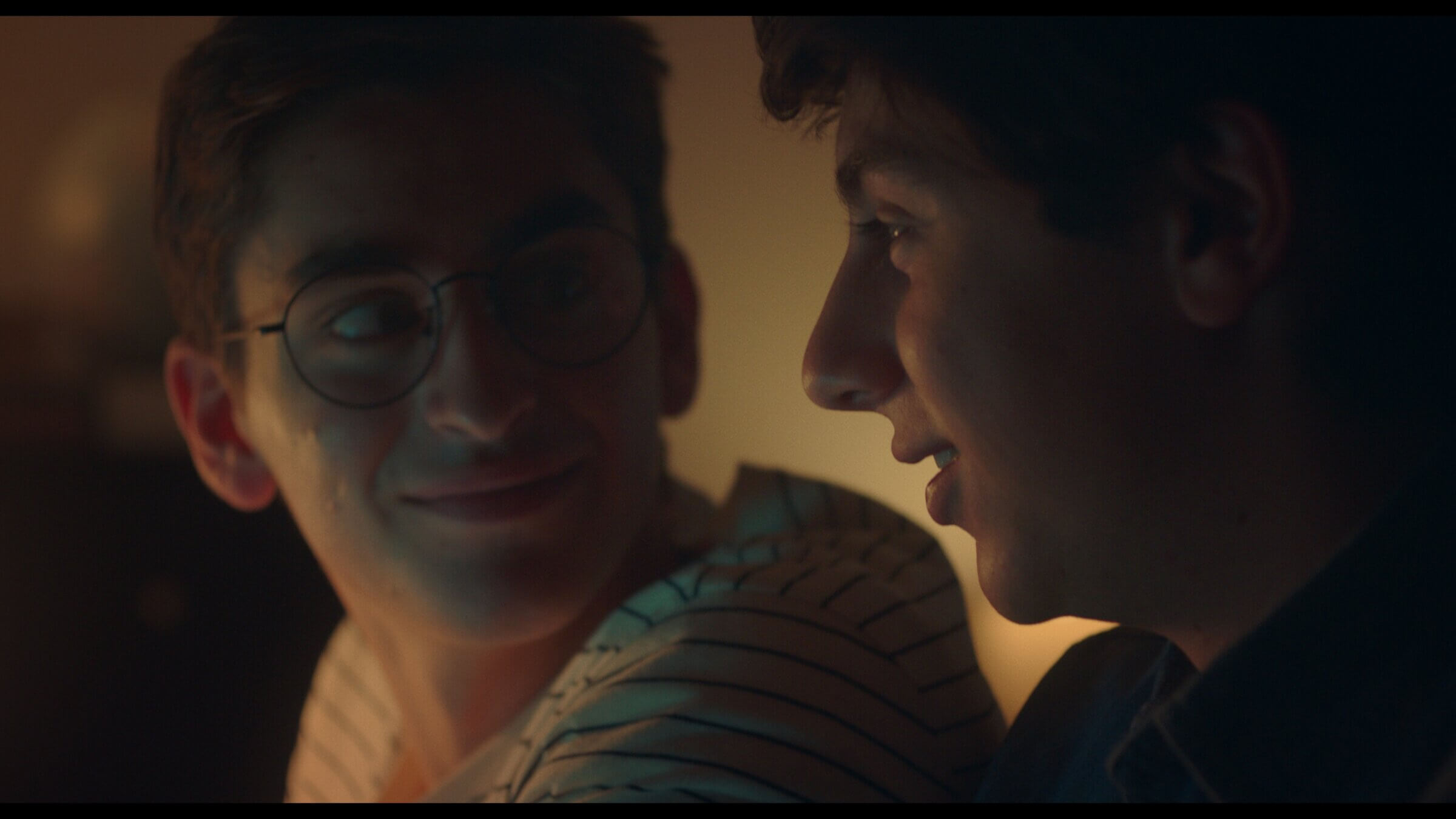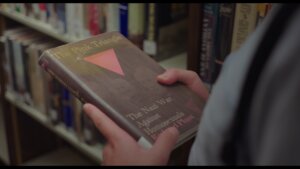In the story of a Jewish teenager coming out and coming of age, a brilliantly understated film
Jeremy Borison’s ‘Unspoken’ is a triumph for a debut film director

A scene from Jeremy Borison’s ‘Unspoken.’ Courtesy of JCC Manhattan
Marking his directorial debut, Jeremy Borison’s Unspoken is a lovely, delicately handled coming of age, coming out story centering on Noam (Charlie Korman), a young Modern Orthodox Jew. The film also touches on what happens when the memory of a beloved elder, now deceased, is tarnished and betrayed.
Noam enjoyed a deep bond with his late grandfather, both men boasting beautiful voices and a love of showtunes.
Shortly after sitting shiva, Noam and his mother (Katherine Kamhi) are clearing out Opa’s closet when Noam discovers a small keepsake box housing a picture of his grandfather, Heinrich, sitting closely alongside another man, the two luxuriating in a grassy German pasture before the war.
The small box also contains a one sentence love note to Heinrich and an engagement ring. But whenNoam asks his mom about Opa’s life prior to the Holocaust, shegrabs the mementos out of his hand asserting none of it is his business and some things are better left unsaid. Noam is determined to learn more about his grandfather’s past and sets out to do so with a fellow classmate, the gentle and soulful Jonah (Michael Zap) with whom he is reluctantly falling in love.
Setting his story in a nameless Modern Orthodox enclave somewhere in middle class suburban America, Borison subtly brings to life a tightly knit traditional and, in fact, loving universe that is becoming increasingly secular. A Frank Sinatra poster adorns Noam’s bedroom wall. His best pal Zack, (Victor Kallett), sporting the most wonderfully demented unkempt hair sticking out beneath his yarmulke, shouts “Gut Shabbos,” while punching his pals.
Yes, heterosexual dating for the purpose of mating (translation: marriage) is still a collective and presumed individual goal, but the young woman is now free and even encouraged to ask the young man out. Here, Noam is pursued by an eager and earnest Miriam (Liz Richmond), whom he likes well enough buthe has no sexual or romantic interest in her and feels ashamed and guilty.

Most striking, Noam attends a Hebrew Day School and also participates in an after school choir whose membership is ethnically and racially diverse, including Kyle (Danny Chon), a flamboyantly gay Filipino who fascinates Noam.
What remains static is the way the Holocaust is taught in the school. While the six million Jews are mourned, the millions of others who were slaughtered are not mentioned at all. Jonah and Noam point out the gap to which the initially irritated teacher rises to the occasion, urging them to do their own research project on the topic. The two pals zero in on gay life prior to and during the Holocaust while also tracking down information on Heinrich and the man Noam believes was his lover.
Noam’s discomfort with the subject matter is palpable and handled with nuance. In his closet, he conceals The Men of the Pink Triangle, a book about gay men in Nazi concentration camps. And when Jonah begins to discuss their research with Miriam, Noam silences his friend.
At the same time, his evolving relationship with Jonah is gently erotic and full of promise.
The acting is uniformly superb, most pointedly Korman as the sensitive anxious young man trying to define himself and find his place in the world. The cinematography by Benji Dell is at once grounded and lyrical. But the star here is Borison who is telling a story that is recognizable and totally original.
Without giving too much away, Noam and Jonah finally encounter Heinrich’s old friend, now ailing and residing in a nursing home. What he reveals about Heinrich’s past has nothing to do with homosexuality but rather centers on something he did that was unconscionable and arguably inevitable in a universe where the only morality was survival. The revelation is devastating and for reasons that are enigmatic yet wholly credible opens the door for Noam to come out.
I was blown away by this brilliantly understated and deceptively simple film.
Now on the festival circuit, Unspoken was recently shown at JCC Manhattan and will be shown at the Los Angeles Jewish Film Festival Sunday, June 23.





















